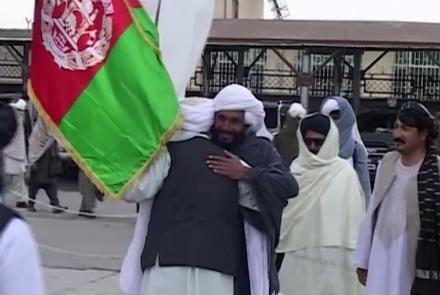There is suddenly a rush to establish a peace process in Afghanistan. The United States of America has installed Zalmay Khalilzad, a special envoy, who has been shuttling between various regional capitals, seeking to rally different stakeholders. At the same time, President Ashraf Ghani appears to be running a parallel effort, which began with his “Achieving Peace: The Next Chapter in the Afghan-lead Peace Process” proposal at the Geneva Conference late last year. Neither effort, however, has addressed key human rights concerns. There is scarcely any representation of women – just three women have been included in the government’s negotiation team of 12 people. There is no word on how the process will ensure victims of war crimes access reparations, let alone how it will ensure accountability for perpetrators. There is no mention of how the limited but important gains on human rights – including women’s and minorities’ rights – will be preserved.
For more than 40 years now, the Afghan people have endured perpetual human rights violations. They have suffered gross human rights violations and abuses such as civilian casualties caused by all sides in the conflicts including through the targeting of civilians or civilian objects, torture and other ill-treatment, enforced disappearances, and the destruction of property. Fleeing conflict in desperation, they have been internally displaced or forced to seek safety abroad as refugees. Afghans have lost their property, assets, and savings. When the Taliban were in power from 1996 to 2001, they specifically targeted religious and ethnic minorities. In recent years, we have seen armed groups continue to target Afghanistan’s minorities in large scale bombings that amount to war crimes. And yet this catalogue of injustice, which is stretching into its fifth decade, wasn’t enough for either the USA or the Afghan authorities to consult the victims when they decided to sue for peace.
Breaking with a history of human rights violations, the subsequent Afghan government committed itself to dispensing with brutal and medieval punishments, letting women and girls educate themselves and work, and liberating religious minorities from a fate that cruelly consigned them to the status of second class citizens. Many key advances were made on these fronts, and they could now be in danger of being rolled back unless necessary pre-conditions are set in negotiating peace agreement.
However, there was limited consideration given to addressing crimes under international law committed by all parties to the conflicts in the country, denying the victims even minimal redress. Consider, for example, the Afghanistan Independent Human Rights Commission’s nationwide consultation conducted in 2004 on transitional justice, which sought to address past abuses as mandated by the then government of President Hamid Karzai.
Following the consultation exercise, a report entitled “A Call for Justice” was published. It led to the development of the “Peace, Reconciliation and Justice in Afghanistan Action Plan”. However, the government failed to follow through on its own commitments.
There was also the case of the Amnesty Bill (Law on National Reconciliation, Public Amnesty and National Stability) passed by the Afghan parliament cemented a climate of impunity, granting immunity to the accused and destroying hopes for accountability. In 2008, the government gazetted the Amnesty Bill for political reasons ahead of the presidential election the following year. The international community was happy to look the other way.
The failure to implement effective justice mechanisms paved the way for individuals reasonably suspected of criminal responsibility for atrocity crimes, including notorious warlords, to be elevated into positions of power. Partly because of a lack of capacity, the Afghan government was not able to investigate and prosecute people accused of war crimes and crimes against humanity.
This pattern of neglect was followed by the National Unity Government that was established in 2014. In 2016, President Ashraf Ghani began courting Gulbuddin Hekmatyar and finalized a deal with the onetime fugitive, in a deal that was later dangled before the Taliban as proof of how the government was prepared for forgetting the armed group’s excesses if only it was prepared to enter power-sharing negotiations. Prisoners from Hekmatyar’s Hizb-e-Islami were released according to the 2016 agreement, without any investigation into their possible involvement in crimes against international humanitarian law over the decades. The message to the victims was clear: their grievances will not be addressed. Despite being a state party to the International Criminal Court (ICC), the Afghan government is failing to take meaningful measures to facilitate the court’s investigations into war crimes and crimes against humanity committed since 2003, when Afghanistan joined the ICC.
As the brave and dignified actions of the peace marchers demonstrates, there is a clear and pressing desire for an end to the hostilities that have caused so much bloodshed and pain in Afghanistan over the past four decades. But efforts to achieve sustainable peace cannot ignore or cement impunity and must not perpetuate the very human rights violations that have fueled the conflict. Sustainable peace will require accountability, and not a reward to those who are guilty of denying girls education, journalists the ability to do their jobs, women the ability to move around freely and work, those who discriminate against and target ethnic and religious minorities while denying human rights defenders the space to fight for the rights of those unable to speak out for themselves.
Afghanistan deserves peace that will put the human rights of the Afghan people at its heart. Without the protection of those rights, will the peace process even be worthy of its name?
Zaman Sultani is a South Asia Researcher at Amnesty International.

